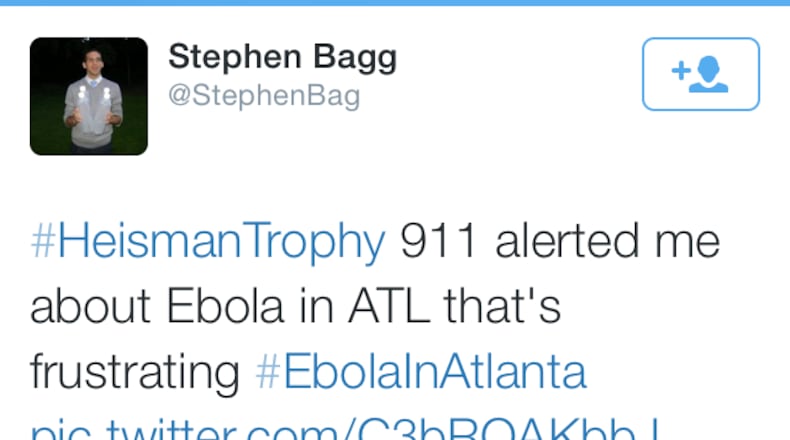If you're a close follower of Twitter, you may vaguely remember the frenetic tweets in December claiming two different crises in Atlanta: A deadly Ebola outbreak and a shocking police-involved shooting death.
Both were hoaxes and largely forgotten within days. But New York Times reporter Adrian Chen thought they resembled an earlier cascade of false tweets and phony videos purporting an explosion at a Louisiana chemical plant.
From his piece in this weekend's Times Magazine:
Who was behind all of this? When I stumbled on it last fall, I had an idea. I was already investigating a shadowy organization in St. Petersburg, Russia, that spreads false information on the Internet. It has gone by a few names, but I will refer to it by its best known: the Internet Research Agency. The agency had become known for employing hundreds of Russians to post pro-Kremlin propaganda online under fake identities, including on Twitter, in order to create the illusion of a massive army of supporters; it has often been called a "troll farm." The more I investigated this group, the more links I discovered between it and the hoaxes. In April, I went to St. Petersburg to learn more about the agency and its brand of information warfare, which it has aggressively deployed against political opponents at home, Russia's perceived enemies abroad and, more recently, me.
His journey was eye-opening – and worth your time.
About the Author
The Latest
Featured




